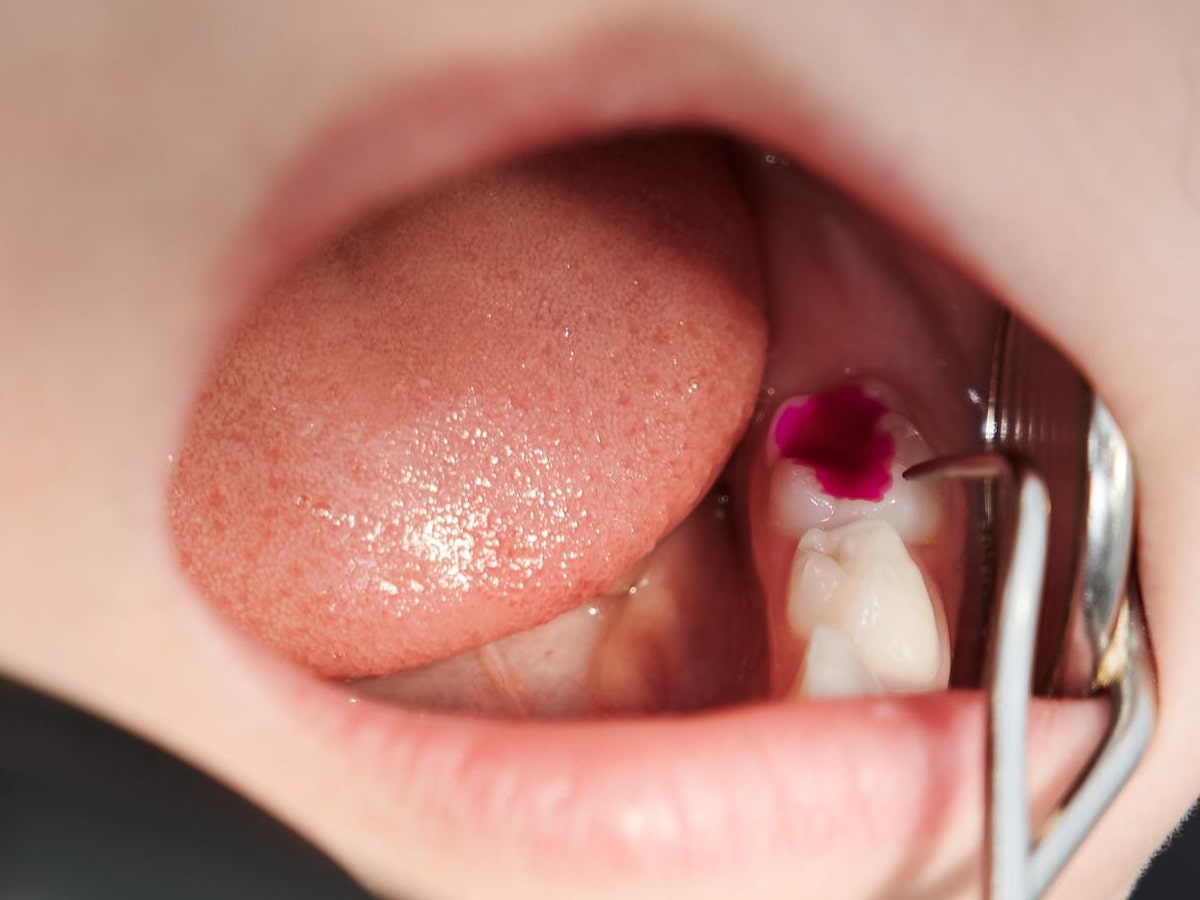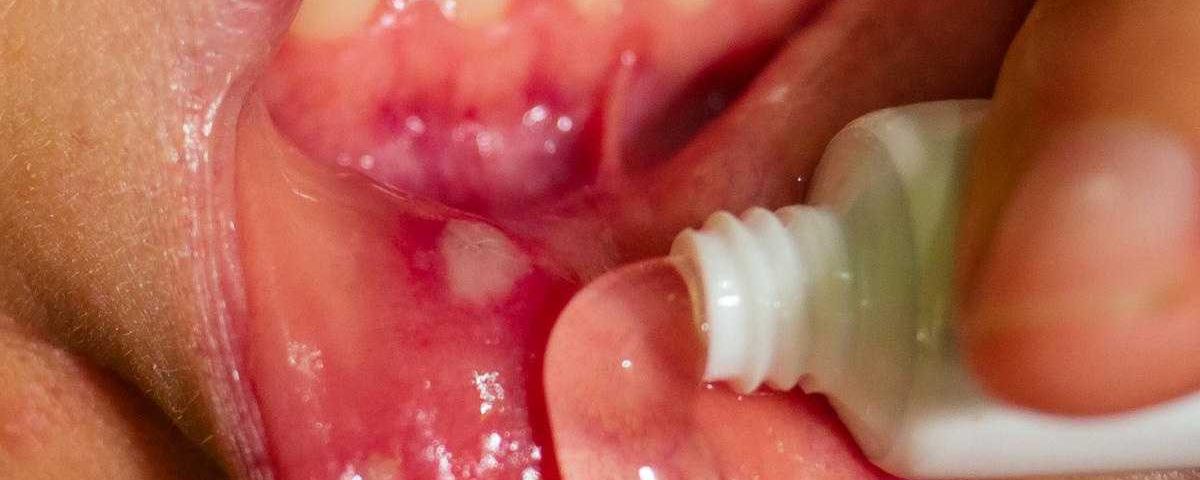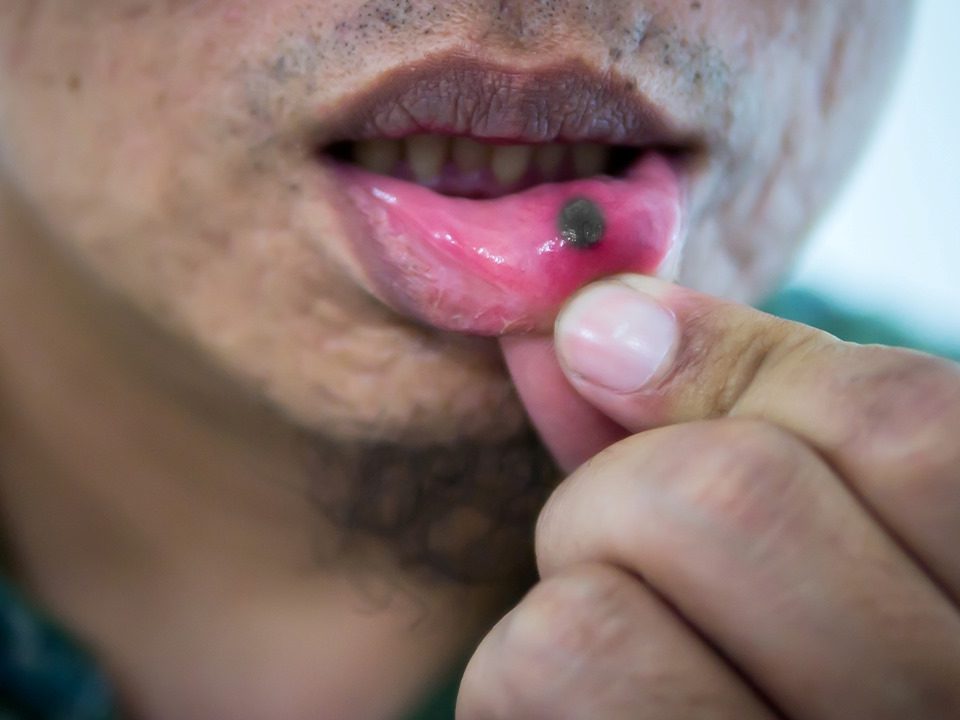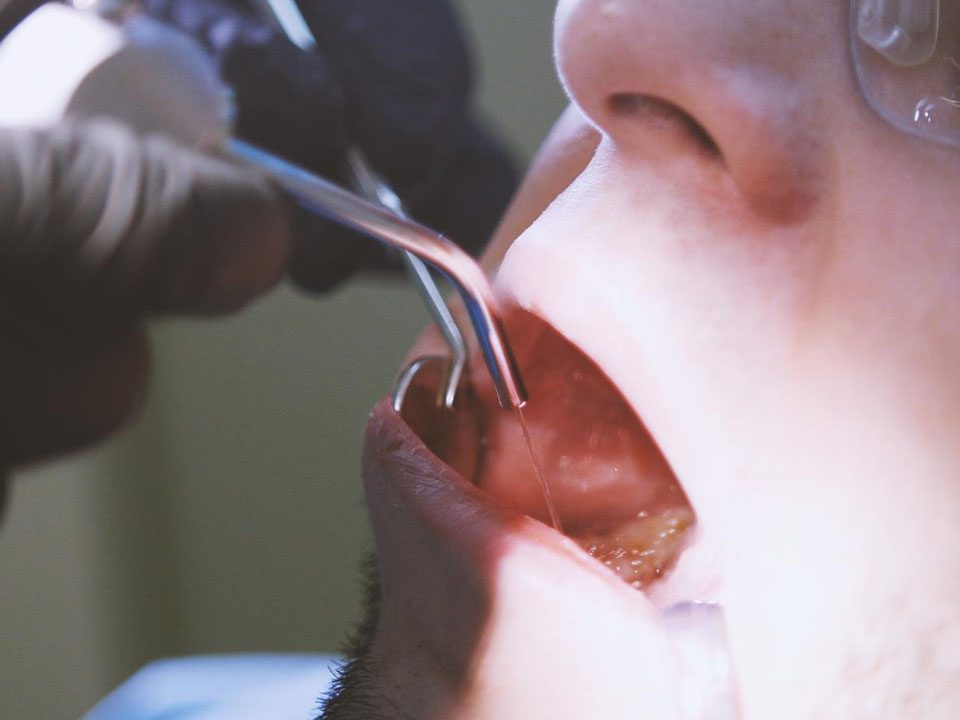
How Long Does Laser Teeth Whitening Last?
October 23, 2023
How Long Does It Take to Fill 3 Cavities?
November 1, 2023Your mouth is a complex and multipurpose organ that aids in communication, digestion, and expression. But, in this complex oral setting, a wide range of lesions and anomalies can develop, prompting an investigation into their causes and effects. To answer the fundamental question, “Are most mouth lesions benign?” This article delves into the fascinating world of oral lesions. We set out on an adventure to unravel the mysteries of benign mouth lesions.
Is It Normal to Have Lesions in the Mouth?
Oral lesions occur frequently enough that they are not considered abnormal. Caused by irritation, injury, and infection, many of them are categorized as benign mouth lesions. However, if lesions persist or cause concern, you should consult a medical professional for a thorough examination. Benign lesions in the mouth can be better treated if caught and treated early, and regular dental checkups can help.
Can Oral Lesions Be Benign?
It is true that in Phoenix, Arizona, most mouth lesions are harmless. Benign mouth lesions are not a significant cause for concern. Various things can cause benign lesions of the mouth, like irritation, injury, infections, or other non-cancerous growths. Most mouth lesions are benign, but regular dental checkups are essential.
Are Most Mouth Growths Benign?
Typically, growths in the mouth are harmless. Let’s look at some of the common benign mouth lesions:
- Canker Sores (Aphthous Ulcers). These are extremely common benign mouth lesions. Ulcers have a red border and a white or yellow center, which can be painful. Stress, injury, or certain foods can all trigger canker sores, which typically clear up on their own after a week or two.
- Fever Blisters or Cold Sores. The herpes simplex virus type 1 (HSV-1) is responsible for cold sores. Blisters that burst and leak fluid appear on or inside the lips. Although not harmful, they can be uncomfortable and recur frequently. Outbreaks can be controlled with the help of antiviral drugs and topical treatments.
- White patches, or leukoplakia, can appear anywhere on the body, including the tongue, the inside of the cheeks, and the gums. While most cases are completely harmless, some are linked to harmful behaviors like smoking and drinking. Healthcare professionals should monitor patients regularly.
- Fibrous tissue tumors are completely safe and common oral anomalies. Biting your cheek can cause them, as can other sources of irritation or trauma. If a fibroma is in the way of normal eating and talking, it may need to be surgically removed.
- Oral Lichen Planus. Sometimes, red, swollen tissues appear in the mouth alongside the white, lace-like patches caused by this condition. While most cases are harmless, there are exceptions where treatment or monitoring is necessary because a cancerous transformation is possible.
- Mucoceles are fluid-filled cysts that can form on the lip, tongue, or floor of the mouth and are completely painless. They happen when a duct in the salivary gland sustains damage and spontaneously bursts. Mucoceles that don’t go away alone may need to be surgically removed.
- Traumatic Ulcers. Biting on the cheek or tongue accidentally is a common source of these injuries. They are usually harmless and get better as the injury does.
What is the Most Common Benign Oral Lesion?
The “canker sore,” known as an aphthous ulcer or aphthous stomatitis, is the most common benign oral lesion in Phoenix, Arizona. Canker sores are tender, tiny ulcers with a red border and a white or yellow center. Lip and cheek linings, the gum line, and the surface or beneath the tongue are potential development sites. These sores flare up frequently and have many potential causes, such as emotional upset, physical trauma (like an accidental cheek bite), hormonal shifts, and even specific foods.
Are All Oral Lesions Cancerous?
Not all sores in the mouth indicate cancer. The vast majority are non-cancerous and, therefore, seen as benign mouth lesions. Certain oral lesions, especially those unusual or persistent, should be closely monitored because they may be precancerous or develop into cancer. Regular dental checkups increase the likelihood of prompt diagnosis and treatment of any dental issues.
What Percentage of Mouth Lesions Are Cancerous?
The percentage of benign mouth lesions that turn out to be cancerous is highly context- and population-dependent. However, it is estimated that only 1-5% of all lesions in the mouth are cancerous. High-risk populations, such as those with heavy tobacco and alcohol use, a family history of oral cancer, or exposure to other risk factors, may have a higher incidence rate.
Benign Mouth Tumor Symptoms
Benign mouth tumors can cause a variety of symptoms, including:
- Painless Lump or Swelling. Many benign oral tumors manifest as nonpainful, slowly expanding lumps or swellings. These growths can manifest anywhere in the mouth, including the lips, gums, tongue, and inside of the cheeks.
- Changes in Color. Affected areas may appear more red, pink, or darker than the surrounding tissue in some cases of benign mouth tumors.
- Pain or Discomfort. Benign mouth tumors can cause mild discomfort if they grow too large or start to get in the way of normal mouth functions like chewing or speaking.
- Although unusual, some benign mouth tumors can cause bleeding or oozing.
- Altered Sensation. Numbness or tingling may develop if a tumor presses on a nerve, causing a change in sensation.
Best Oral Lesion Services Near Me in Phoenix, Arizona
At Atrium Dentistry in Phoenix, Arizona, we treat all oral lesions. In order to guarantee your oral health and peace of mind, our skilled staff is trained to identify and treat a wide range of oral conditions in a unique way.
Our trained staff is here to help you regardless of whether you have oral irregularities, benign lesions, or need a biopsy. Make an appointment for a consultation with us today and take the first step toward a brighter, more confident grin.
Conclusion
It is important to distinguish between common benign mouth lesions and those more serious ones. Accurate diagnosis and rapid medical intervention are crucial. Lesions in the mouth can be avoided by practicing good oral hygiene and living a generally healthy lifestyle. Always consult a doctor if you have any doubts about the nature of a lesion in your mouth.
FAQs
Are all mouth lesions harmless?
Occasionally, mouth lesions can indicate a more serious problem, like oral cancer. You should see a doctor if you have any persistent or suspicious lesions.
Can mouth lesions be caused by stress?
Several mouth lesions, including cold sores and canker sores, can be triggered by stress. Preventing disease requires managing stress.
What can I do to relieve the pain of mouth lesions at home?
Over-the-counter pain relief and avoiding trigger foods can alleviate many mouth lesions.
Is tobacco use a common cause of mouth lesions?
There is a strong connection between tobacco use, such as smoking or chewing, and the development of oral lesions like leukoplakia.
When should I be concerned about a mouth lesion?
In case of persistent mouth lesions or discomfort, signs of infection, or suspicions, seek medical attention.



